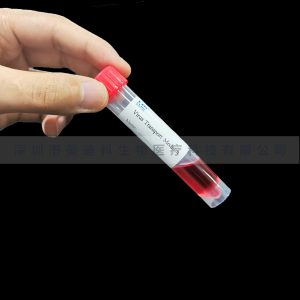Am 7. November, Stadt Dezhou, In der Provinz Shandong wurden positive SARS-CoV-2-Nukleinsäuren auf der Verpackung importierter Kühlkettenprodukte festgestellt.
Am 8. November, Ein neuer Kühllager-Schauer in Tianjin wurde positiv auf Nukleinsäure getestet, Dies war ein bestätigter Fall bei COVID-19.
Am 9. November, Ein asymptomatischer Patient wurde nach Tianjin aufgenommen, who was a truck driver and went to the cold storage to pull goods.
Am 9. November, a new confirmed case was reported in Shanghai, which was engaged in handling work at Pudong Airport.
On November 10th, a case of COVID-19 was confirmed in Yingshang County, Fuyang, Provinz Anhui, which was closely connected with the confirmed cases in Shanghai yesterday.
Under the normal prevention and control, it is not surprising that there are sporadic and repeated epidemics in various places, but on the other hand, it also reminds us that risks still exist objectively and the string of prevention and control should be tightened. Especially, when we find out that the outer packaging of cold chain food has been tested positive for nucleic acid in the past few months, „frozen food“ has become an unavoidable keyword in our epidemic situation.
The re-discovered confirmed case in Tianjin originated from the report of Dezhou City, Shandong Province on the evening of November 7, and found that the outer packaging of a batch of frozen German pork imported from Tianjin Port was positive for nucleic acid test.
Upon receiving the notification, Tianjin immediately launched nucleic acid testing for relevant personnel. In just a few hours, in the early morning of 8th, the test results showed that a cold storage loader in Hailian Cold Storage of Sino-Singapore Tianjin Eco-city was positive for nucleic acid test, which was also the 138th local case in Tianjin.
He Peng, spokesman of Tianjin Health and Health Commission: The patient had a history of contact with imported cold chain food and no history of going out 14 days before the onset of the disease, which undoubtedly seemed to be a history of contact with cases and confirmed cases, and did not contact with patients with fever or respiratory symptoms. On November 4th, the patient participated in the handling of imported frozen food.
At the press conference that day, the complete track of the imported cold chain food was also announced. After investigation, this batch of frozen pig elbows detected positive in the outer packaging came from bremerhaven, Germany and arrived in Tianjin on October 19; Im November 4, the goods were transported from the Pacific Terminal to Hailian Cold Storage, where the case participated in cargo handling; Im November 5, the goods were all shipped to Dezhou, Shandong Province; Am 7. November, it was positive in Texas. From entry to detection, the virus survived in cold chain for nearly 20 Tage. Yesterday morning, genome-wide sequencing showed that the 138th local case in Tianjin was highly similar to the epidemic strain in North America from March to June. Zur selben Zeit, it is proved once again that cold chain long-distance transportation may spread to SARS-CoV-2.

Produkteinführung des Abstrichkits für Probenahmeröhrchen für inaktivierte Viren Der Zweck des Abstrichkits für Probenahmeröhrchen für inaktivierte Viren besteht darin, die Nukleinsäureproben des inaktivierten Virus zu konservieren und zu übertragen















 Produkteinführung des Abstrichkits für Probenahmeröhrchen für inaktivierte Viren Der Zweck des Abstrichkits für Probenahmeröhrchen für inaktivierte Viren besteht darin, die Nukleinsäureproben des inaktivierten Virus zu konservieren und zu übertragen
Produkteinführung des Abstrichkits für Probenahmeröhrchen für inaktivierte Viren Der Zweck des Abstrichkits für Probenahmeröhrchen für inaktivierte Viren besteht darin, die Nukleinsäureproben des inaktivierten Virus zu konservieren und zu übertragen

